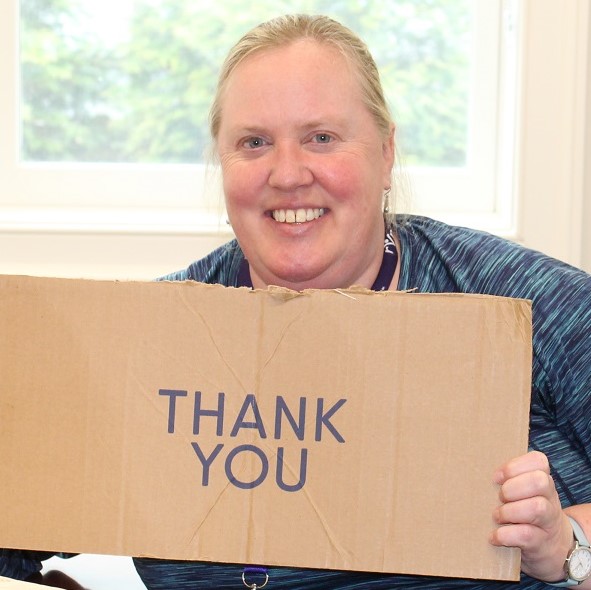

Kate, RN
RN Case Manager
Hometown: Ridgefield, CT
Tell us a bit about yourself: One of the places you’re most likely to find me when I’m not working is up in Woodbury, taking care of and going on trail rides with my horse, Fuzzy. He’s 25 years old. Just like people, as horses get older they start losing muscle mass. So those trail rides are good for the both of us!
When and why did you become a nurse? I am a math and science geek, and I have a four-year degree in biology. But my first career was in HR, following an internship. I eventually decided that wanted to combine the “human” part of HR with my science degree. So I went back to school (Pace University), and completed an accelerated nursing program.
Where do you see patients? The majority of my patients are in facilities in Wilton and New Canaan.
What is a favorite moment/time from your career as a nurse? Safety is a huge part of what we do. At the end of last week, I was excited because one of my patient’s wounds were healing super well. With another patient who had a cardiac condition and had suffered a stroke, the victory was that she is walking steadier, is taking her meds the way she should, and she has an ongoing plan. It’s stuff like that that we work toward every day. Patients making progress toward their health, their strength and their overall safety.
What are some things that might surprise people about being a nurse?
For starters, how doctors rely on our assessments and recommendations. Many doctors don’t get to see their patients a lot, so we have to be their ears and eyes wherever the patient calls “home.”
There’s also a misconception that our job is just about wound care or taking blood pressure. In my role, I oversee the overall plan of care for multiple patients. I supervise CNAs and LPNs, and a huge part of that involves educating. Teaching what the patient’s most recent healthcare issue was, what to look out for, and how to improve their health so they can avoid hospitalizations.
How has your job changed with COVID-19? There were some changes in the beginning [with enhanced safety protocols]. But we are just trying to keep patients safe – as we always have.


